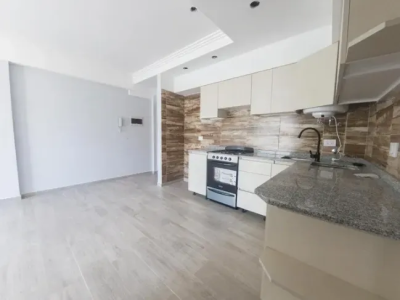BuySellBA
Administrator
Historic record: mortgage loans soar by 511% annually - Ámbito Financiero

Source:

Récord histórico: créditos hipotecarios se disparan un 511% anual
Un informe privado confirmó que los préstamos UVA alcanzan $3,8 billones en junio. ¿Se ameseta el ritmo de 1.000 créditos mensuales en CABA?
July 10, 2025
A private report confirmed that UVA loans reached $3.8 billion in June. Is the pace of 1,000 loans per month in Buenos Aires City plateauing?
By Andrea Glikman and José Luis Cieri

Public banks like Nación and Ciudad offer the best rates compared to private banks. Before taking out a loan, it's essential to check the terms and conditions.
According to the latest report from First Capital Group, the total mortgage loan balance , including inflation-adjustable mortgages (UVA) , reached $3.8 trillion in June, representing a nominal monthly increase of 12.9% and a staggering 511.6% year-over-year. Analyzing real numbers excluding inflation, the consulting firm also found that monthly growth was 10.7% and annual growth was 336.9%, consolidating this line of credit as the one with the greatest relative expansion in the system.
On a quarterly basis, cumulative growth was $1.2 trillion, while in the last six months it doubled, rising to over $2 trillion. These figures mark a clear recovery in housing financing, driven by the return of inflation-adjusted instruments and increased interest among families in accessing housing solutions.
Guillermo Barbero , partner at First Capital Group, emphasized: "It is the only line that is primarily intended for families that were able to increase their balances by an absolute value greater than the previous month, which indicates that its upward curve remains firm and continues to attract more and more interested parties."
The evolution of mortgage lending contrasts with other lines of credit, which showed less dynamism in June. However, the upward trend in the housing segment suggests a sustained revival of interest in this type of financing, amid improving expectations and falling inflation.
A crucial change and advice
Miguel Chej Muse , coordinator of the Real Estate Market Statistical Observatory of the Buenos Aires Real Estate Association, emphasized that the return of mortgage lending is one of the most important factors for the real estate market today. "For many buyers, this means the possibility of accessing their own home after years of a virtually paralyzed market," he said.He explained that current loans finance up to 70% of the property's value , requiring borrowers to make a minimum down payment of 30% . "Something that isn't easy in a country with low financial education," he added. The difference in this down payment directly impacts the installment: "If 70% of a US$100,000 property is financed with an APR of 8%, the installment is around $650,000. But if only 20% can be paid in advance, the installment rises to $740,000, a 14% increase," he explained.
In a scenario of inflation-indexed loans , he emphasized the vital importance of income keeping up with price increases to a minimum . "This is a loan that adjusts above the CPI, so it's key that salaries are updated periodically. If they already do so bimonthly or quarterly, that's a good sign," he explained.
The sector emphasized that having the largest possible down payment improves credit terms. The smaller the amount financed, the lighter the installment. Therefore, they advise saving ahead of time and, if possible, investing those savings to protect them from liquidation.

One- and two-room apartments are among the most popular in Buenos Aires and the province of Buenos Aires.
Furthermore, Chej Muse emphasized that these loans should be evaluated regardless of the current government. "There will be many governments and probably several crises. You have to think long-term and consider what you would do in an adverse scenario, such as losing your job," he stated.
They could stagnate at 1,000 per month
While this is a record for mortgage loans compared to the sector's bad years of crisis (between the end of 2018 and the beginning of 2024 there were very few or no transactions), loans could now stagnate at 1,000 or 1,100 per month in CABA and 1,800 in the province of Buenos Aires.Federico González Rouco , an economist specializing in the real estate market at Empiria Consultores, explained that the slowdown in mortgage loan approvals is due to a tension between macroeconomic stability and banks' funding capacity. Although macroeconomic stability fosters a shortage of pesos in circulation, this lack of liquidity also affects banks, limiting their ability to provide long-term loans.
González Rouco emphasized that in Argentina, most bank deposits are for 30 days, while mortgage loans are granted for 20 or 25 years. Therefore, he emphasized the need to advance alternative funding schemes, since, while credit is growing from a very low base, deposits are not keeping pace.
Finally, the economist concluded that the delays in granting loans (which in some banks reach between 90 and 120 days) are due to the system becoming "saturated ." Many institutions had not granted mortgage loans for over a year and had to rebuild their teams. Furthermore, without sufficient funding, it is impossible to maintain the pace of loan issuance.
www.buysellba.com

